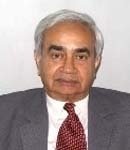India and Pakistan: The Kargil Redux
04 Feb, 2013 · 3806
PR Chari discusses General Shahid Aziz's revelations about Kargil and their implications
Hardly has the dust settled on the Indo-Pak allegations and counter-allegations regarding the tragic death of two Indian and two Pakistani soldiers following cross border firings across the LOC, and the trade and transit between the two countries disrupted in consequence been restored than a new ghost has arisen from the grave to bedevil their relations all over again.
Dawn (Karachi) has published a lengthy article extensively quoting Lt. Gen. (retd) Shahid Aziz, former Chief of General Staff in the Pakistan Army, detailing the Kargil operations in May-July 1999 that ended in ignominy and failure. The article itself is a curtain raiser for General Aziz’s book that is expected to be released next week. Much of what the article purports would be detailed in the book and is widely known, but its value lies in the mea culpa tone adopted by frankly confessing to what was really happening in Pakistan at that juncture. There are some five critical points in this narrative that bear highlighting.
First, Operation Badr as Rawalpindi code-named the Kargil intrusions was a closely knit conspiracy. It was confined, and this is documented in several other accounts, to just four military officials, viz. General Musharraf (Chief of the Pakistan Army), Lt. Gen. Mohammad Aziz (Chief of the General Staff), Lt. General Javed Hassan (Force Commander, Northern Areas), and Lt.Gen. Mahmud Ahmed (Commander 10 Corps). Amazingly, even the Director General Military Operations, Lt. Gen.Taugir Zia, was not informed. The question of enlightening the other two armed forces in Pakistan viz. its Navy and Air Force just did not arise in these unusual circumstances.
Second, a lively controversy had arisen when Kargil occurred, which has continued thereafter, as to whether Nawaz Sharif, the civilian Prime Minister, knew about these operations. In other words, was he taken into confidence by General Musharraf, and to what extent? General Shahid Aziz believes that, “Mr. Sharif was not fully in the picture” and this choice of words is significant. The Indian Defense Minister at that time, George Fernandes, is on record stating that Nawaz Sharif was kept out of the picture. Several accounts have claimed that he was told about these operations but, perhaps, not provided any details. This interpretation is probably accurate, in that Sharif was given some sketchy information about the Kargil operations, but not explained its repercussions or their potential consequences or their political implications.
Third, this account negates the fiction promoted by Pakistan that the Kargil intrusions were conducted by militants and some elements of its Northern Light Infantry (NLI); indeed, it clarifies that, apart from the NLI, regular Pakistan Army troops were deployed. The NLI, too, was not a true para-military force, since it was operating under the control of the regular Army. In fact, there was much derision everywhere with Pakistan’s strenuous claims that mujahedeen were responsible for the Kargil intrusions. It was apparent that highly trained and acclimatised personnel were needed to survive and fight at those heights. taking into account the terrain here.
Fourth, this account informs that Pakistan wished to interdict the Srinagar-Drass-Kargil-Leh road and cut off Indian logistical support to Siachen, forcing India to evacuate the area. Other accounts would suggest that several other motives were operating like regaining the territory lost to India after the 1971 conflict in the Kargil sector, reinforcing militancy in the Kashmir Valley and Ladakh, and internationalising the Kashmir dispute.
Fifth, General Shahid Aziz is quite right in holding that the Pakistani ‘Gang of Four’ had grievously miscalculated the likely Indian and international response to the Kargil intrusions. The belief that India would quietly acquiesce to the alienation of significant territory in Jammu and Kashmir was completely naive. Domestic imperatives would have forced New Delhi into a “not-an-inch-of-our-sacred-land-will-be-lost” posture leading to its violent reaction. And, the international community could hardly have looked on benignly while settled borders were infracted, lest it inspire other aberrant states and global anarchy. In the event, Pakistan was forced to withdraw its forces from across the LoC and face universal opprobrium for its feckless adventurism.
A review of this sorry history only consolidates the impression that Pakistan is a permanent state of concern. Its rulers have no use for international norms, codes of conduct or civilised discourse with its neighbors. Following Kargil, Pakistan had instigated the attack on the Indian Parliament in December 2001, encouraged the Mumbai attacks in November 2008, sheltered Osama bin Laden in Abbottabad until he was discovered and eliminated in May 2011. Earlier, A.Q.Khan was freely transferring nuclear technology across the world with official patronage. The latest revelations regarding the Kargil misadventure will only strengthen beliefs that Pakistan is an outlier in the international system.
New Delhi will have only itself to blame if it fails to appreciate this reality.


